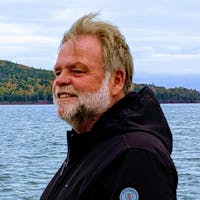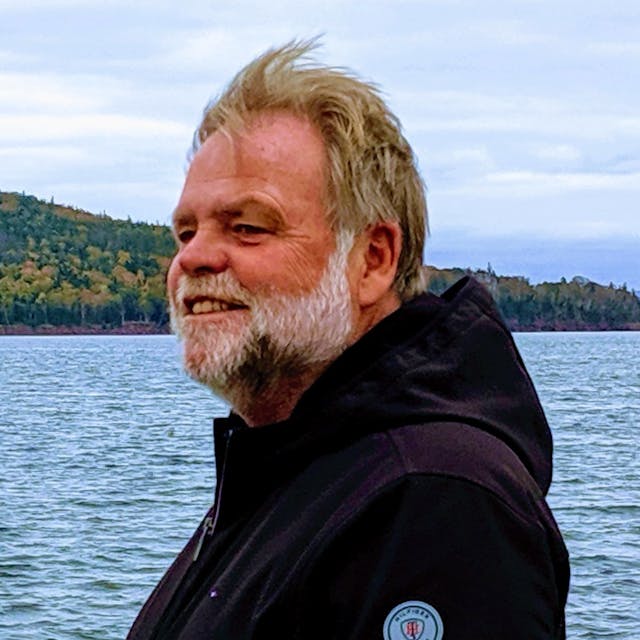Answering The Call
6 min read

Planning for the Future: One Day at a Time

by Bruce G. Epperly, Ph.D.
This week my wife Kate and I took a tour of Asbury Village, a continuum of care retirement community (CCRC), in the Washington DC suburbs. At seventy-two and seventy-four, we are planning to relocate in the next five years. Imagining a CCRC as our next home, marks our awareness of the seasons of life and the possible need for assisted living, skilled nursing, or memory care some day in the future. The fact that this is likely our last move also testifies to the realities of the aging process and mortality as well as our ability to plan for the best possible life, come what may.
Plato’s Socrates once said that “the philosopher ponders death” and that the recognition of our mortality challenges us to awaken to eternity in the midst of life and, in today’s language, seize the day and live fully in the moment.
The philosopher Alfred North Whitehead once noted that the limitations we face are the source of possibilities we can imagine. Another word for “limitation” is the concreteness of life—our current spiritual, physical, mental, emotional, financial, environmental, economic, and political situation. A good life is the result of knowing where we are and having a vision of where we may be going. Choosing well the next steps in our aging adventure can be a matter of a painful or joyful future.
While no one knows the hour or the day of our deaths or what will happen in the next twenty-four hours, we can anticipate both adventure and diminishment. We will embrace and let go, claim new possibilities and let go of old familiarities. Continuum of care communities are not for everyone. But planning for the years ahead in terms of appropriate housing, neighborhood, activities, and best- and worst-case scenarios is important in ensuring the best possible retirement.
My daily practice of affirming, as I take the first steps of my morning walk, “this is the day that God has made, and I will rejoice and be glad in it” sets the tone of my day. It also continues a practice I started when I was a congregational pastor and seminary professor and administrator: setting flexible short-term and long-term visions. When I was working full-time, I often told the staff and congregations with which I worked that “I have a vision, but not an agenda.” I still follow this practice every evening and when I rise in the morning. It gives me a polestar amid the essential uncertainty and novelty of every day.
In retirement, one of the challenges many of my friends and colleagues face is moving forward in their lives, while serendipity, synchronicity, novelty, and surprise are part of a good life. A vision for the day ahead also helps orients us and enables us to be agents of adventure, and artists of our experience, rather than passive observers of our lives. On the continuum of life choices, planning to move to a senior CCRC community is a big deal and will take many small steps. Living day to day is a simpler, more directed process, and the source of joy, if you don’t try to fit each day into a mold, can leave room for surprise. As I used to say to my students, “I prepared my course syllabus and lecture in my arts and crafts chair at home, and now that you’ve showed up, it’s an entirely different class.” Have a plan and make room for the unexpected.
Each night before going to sleep, I have a regular practice that promotes intentionality and agency. First, I set an intention for the day, such as “tomorrow I’m going to write a piece for the Pension Boards and prepare to welcome my former student (now retired) Cyndi who’s coming to DC to protest the Trump administration’s policies.” If I’m writing, I set a writing intention, think for a minute about what my goal is, and then commit it to my unconscious to play with it while I’m asleep. Finally, I place what I can’t control in God’s care: trusting that whatever happens in the night, “it will be well with my soul.” To give my life a bit more framework, I make a list of possible goals for the next day, knowing that it is “my list” and most of it is optional. That keeps me from the stress of tasks I must complete. If I begin to feel the stress of the unfinished, I remind myself that “I chose this. I set the goal, and if it’s not essential, tomorrow will be fine, too!”
Order and novelty, predictability and surprise, planning and the unexpected: faithfully and flexibly joining them makes for a life of agency in which we move forward one step at a time and for the long haul as agents of our adventure and companions in bringing beauty and purpose to our lives and making a difference for the good to those around us.
Plan Your Legacy
If you have questions regarding FreeWill or want to discuss including Ministerial Assistance in your legacy planning, please contact Rev. Dr. Paul Ramsey, Director of Church Relations & Philanthropy at pramsey@pbucc.org or by phone at (212) 729-2738.
If you have already made a gift in your will to Ministerial Assistance, please let us know here so we can properly acknowledge your generosity.

by Rev. Bruce G. Epperly, Ph.D.
Bruce Epperly is a theologian, pastor, and author of over eighty books, including “The Jubilee Years: Embracing Clergy Retirement,” “101 Soul Seeds for a Joyful Retirement,” and “Jesus: Mystic, Healer, and Prophet.” He may be reached at drbruceepperly@gmail.com.
Be open to the leading of the One who is accompanying you through this, and in all, of your journeys.Rev. Dr. Martha M. Cruz
RELATED ARTICLES
Spiritual Decluttering as a Lenten Discipline
Keep Calm and Move Forward: Wisdom from Howard Thurman
POPULAR RESOURCES
Securing Your Foundation for the Ministry of Others
Changes in your ministry role, unexpected life events, or other personal challenges can impact your financial wellbeing and retirement plans. Secure your financial foundation.
